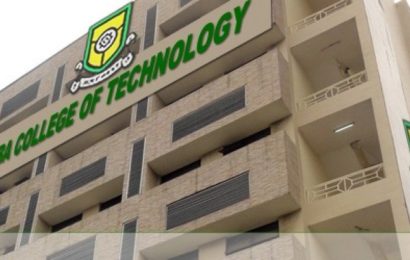
The Nigerian Communications Commission (NCC) says it has directed funds to universities to encourage innovation in the country.
The Executive Vice Chairman of NCC, Prof. Umar Danbatta, stated this on Wednesday in Lagos, during the Second Roundtable with the Academia, Industry stakeholders and others, for the South West Region.
Represented by the Executive Commissioner, Technical Services, NCC, Mr Ubale Maska, Danbatta said that the commission had partnered universities to boost research and development.
He said that the advancement of technology across several spheres of human endeavour had created new industries, opportunities, knowledge areas and challenges.
This, according to him, had increased the speed at which alignment between the different stakeholders in the economy should take place, to ensure that no aspect of development was left behind.
“Innovation is seen as a way to break out from the old and embrace the new technologies.
“’Innovate or Die’’ is a slogan used by many business enterprises. In order to survive, the industry needs to embrace innovation.
“Innovation to telecommunication comphnologies.“’Innovate or Die’’ is a slogan used by many business enterprises. In order tanies can be a linear machine to deliver what they deliver best.
“Every telecommunications provider will aspire to transform into that new agile future-looking telecommunication company,’’ Dabatta said.
READ ALSO: NCC tasks state govt on investing in broadband implementation
He said being aware of this increasing phenomenon, the commission among other things, directed funds to boosting research and development in universities across the country to encourage innovation.
“I am glad to say that our universities are making good progress in Information and Communication Technology research and development,’’ he said.
According to Danbatta, the academia is a key driver of innovation in all spheres of human endeavour.
He said that the ideas, inventions and improvements that emanated from the academia were required by the industry for improved efficiencies and productivity.
Danbatta said that there was increased delivery of speed by various broadband technologies like 4G and 5G technologies.
He said advancement in processor and other electronics technologies had led to huge opportunities and risks.
This, he said, necessitates collaboration between academia, industry and regulators to ensure the technologies can be properly harnessed and standards built in such a way that is beneficial to all stakeholders.
Maska, who was in turn represented by Mr Bako Wakil, Deputy Director, Technical Standards and Network Integrity, NCC, said the NCC was seeking to promote synergy between academia, industry and the regulator.
He said this was to facilitate innovation, industry growth and sustainability.
Maska said that technology had become the driving force that was unleashing new ways of doing things in an unprecedented manner.
According to him, how the telecommunication sector advances and how it does so in a sustainable and ethical way should be the concern of all.
“As a consequence, the NCC’s vision of what this forum should achieve is that Nigerians become an integral part of the global ICT community; contributing our quota to advances in ICT globally.
“’Over the years, the industry has experienced a remarkable growth. Recent forecasts by Insight Research Corp. shows that worldwide, telecommunications industry revenue will reach 2.4 trillion dollars in 2019.
“Consumer demand for the latest wireless devices and higher bandwidth are driving the growth in telecommunications service, while the shift to cloud-based solutions is enriching the value of the networks.
“A large percentage of business activities now depend on these mobile devices and network applications for everything from electronic commerce to navigation to consumer service.
“Success I believe usually comes with talent, willpower and hard work in equal measures. The academia has all of these in abundance,” he said.








